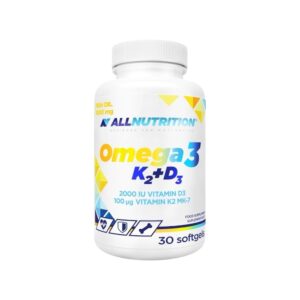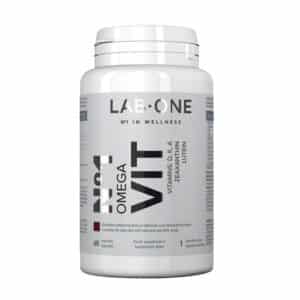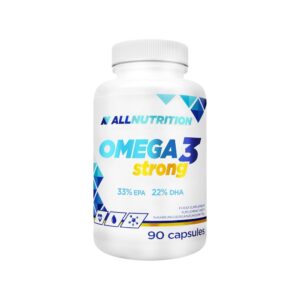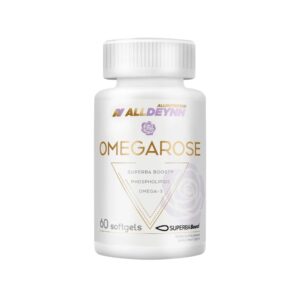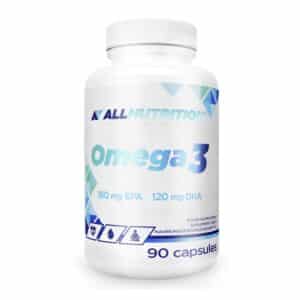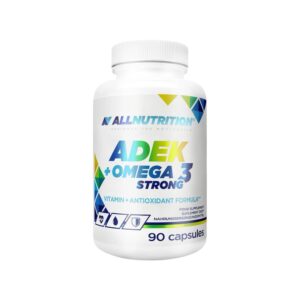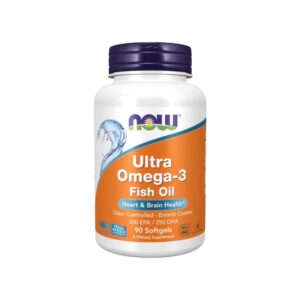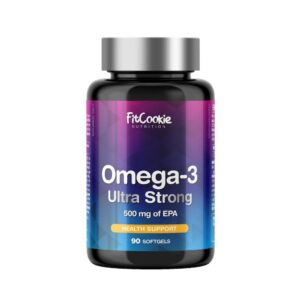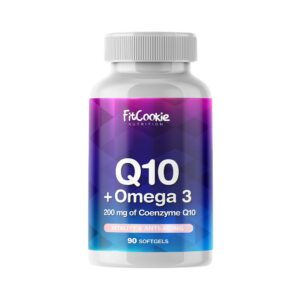Fish Oil & Omega3
Omega 3 supplements
What is omega 3?
Omega-3 fatty acids are found in foods like fish and flaxseed and dietary supplements like fish oil.The three main omega-3 fatty acids are alpha-linolenic acid (ALA), eicosapentaenoic acid (EPA), and docosahexaenoic acid (DHA). ALA is found primarily in vegetable oils such as linseed, soybean, and canola oil. DHA and EPA are found in fish and other shellfish.
ALA is an essential fatty acid, which means that the body does not produce it, so you have to obtain it from the food and beverages you consume. The body can convert some ALA to EPA and then DHA, but only in very small amounts. Therefore, the only practical way to increase the concentrations of omega-3 fatty acids in the body is to obtain EPA and DHA from food (and from dietary supplements, if you take them).
Omega-3 fatty acids are important components of the membranes that surround every cell in the body. DHA concentrations are especially high in the retina (eye), brain, and sperm. Omega-3s also provide calories to give the body energy and have many functions in the heart, blood vessels, lungs, immune system and endocrine system (the network of glands that produce hormones).
When to take omega 3?
Fish oil is a dietary source of omega-3 fatty acids, substances that the body needs for many functions, from muscle activity to cell growth.
Fish oil supplements come in liquid, capsule, and pill forms.
People take omega-3s to reduce the risk of heart attack and stroke, to treat high triglycerides and high blood pressure, and to improve symptoms of rheumatoid arthritis.
Don’t take omega 3 on an empty stomach!
There are two reasons for this:
- The first is that omega 3 supplements are more easily tolerated with food than on an empty stomach.
- Secondly, omega 3 fatty acids are better absorbed when taken with a meal. This is because the fat in food stimulates pancreatic lipase enzymes. The higher the enzyme activity, the more omega 3 triglycerides are broken down and then absorbed in the small intestine.
There is no perfect time to take omega 3 fish oil, but you should take fish oil with food to achieve maximum absorption.
How much omega 3 per day?
Experts have not established recommended amounts of omega-3 fatty acids, except for ALA. Average RDA for ALA is listed below in grams (g). The amount you need depends on your age and gender.
Stage in life recommended amount:
- From birth to 12 months 0.5 g
- Children 1 to 3 years 0.7 g
- Children from 4 to 8 years old 0.9 g
- Children 9 to 13 years 1.2 g
- Girls 9 to 13 years old 1.0 g
- Adolescents (males) 14 to 18 years old 1.6 g
- Adolescents (girls) 14 to 18 years 1.1 g
- Adults (men) 1.6 g
- Adults (women) 1.1 g
- Pregnant women and adolescents 1.4 g
- Breastfeeding women and adolescents 1.3 g
The American Heart Association (AHA) recommends eating at least two servings of omega-3-rich fish a week. One serving equals 3.5 ounces (100 grams)
Omega 3 benefits
Omega-3s are good for the heart and blood vessels in several ways.
- They lower triglycerides, a type of fat in the blood.
- They reduce the risk of developing irregular heartbeats (arrhythmias).
- They reduce the accumulation of plaque, a substance that includes fat, cholesterol and calcium, which hardens and blocks the arteries.
- They help to slightly lower blood pressure.
- These healthy fats can also help with cancer, depression, inflammation, and ADHD. Health experts are still discovering all the possible benefits of omega-3 fatty acids.
Omega 3 side effects
Scientists are studying omega-3s to understand how they affect health. People who eat fish and other shellfish are at lower risk for several chronic diseases. However, it is not clear whether these health benefits come simply from eating these foods or from the omega-3s in these foods. Here are some examples of what research has shown.
Omega 3 fatty acids can cause side effects. Tell your doctor if any of these symptoms are severe or do not go away:
- burps
- acidity
- stomach pain or discomfort
- articulations pain
- vomiting
- constipation
- diarrhoea
- sickness
- Alzheimer’s disease, dementia, and cognitive function
- change in taste
Omega 3 fatty acids can cause other side effects. Call your doctor if you have any unusual problems while taking this medicine.
Best omega 3 supplements
Omega-3 dietary supplements include fish oil, krill oil, cod liver oil, and seaweed oil (a vegetarian source of omega 3 that comes from seaweed). These provide a wide range of doses and forms of omega-3s, so you will surely find something tailored to your needs.
If you want to buy the best omega 3 supplements you’re in the right place, at FitCookie we have the best omega 3 supplements that’ll help you to reach your goals. Some of the best products are:
- Omega Vit 60Caps – Lab One
- Omega-3 Deep See Fish Oil 90Caps – Iron Horse
- Platinum 100% Omega Fish Oil 100 Soft Gels – Muscletech
- NOW FOODS – OMEGA 3 1000MG 100 CAPS,
With us, you’ll find the best quality and prices.
Trust us as many people have!

